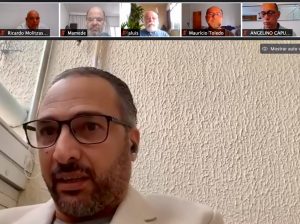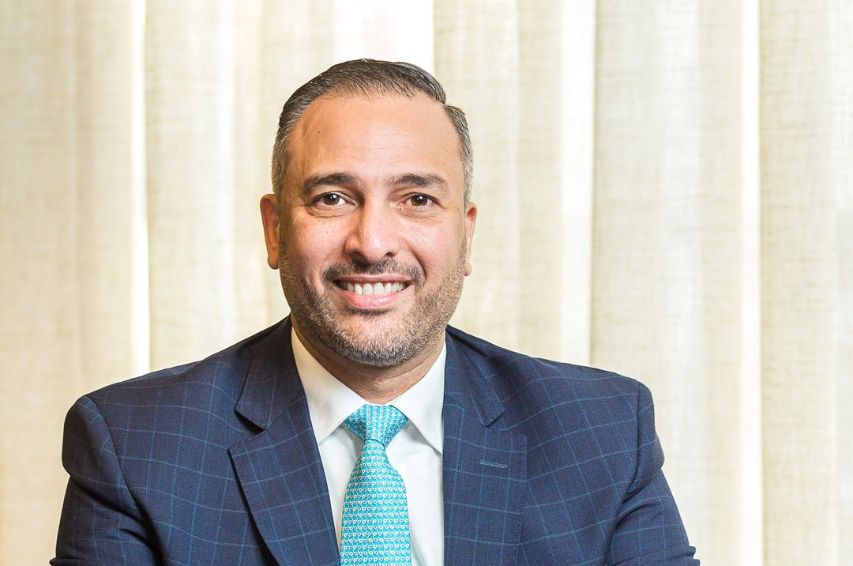São Paulo – “Despite the pandemic crisis, Arab ports haven’t stopped, nor do they intend to,” said Arab Brazilian Chamber of Commerce secretary-general Tamer Mansour (pictured above) during the webinar “Challenges of Covid-19 to the logistics-ports industry,” hosted Thursday afternoon (7) by Brasil Export.
Mansour said utmost care is being taken in Arab ports to prevent contagion in loading and unloading cargo. “They banned all changes in staff in all Arab ports to prevent infection of any kind, and they also banned tourist ships until second notice,” he said.

According to information from the Arab Chamber, Brazil’s top five export destinations in the Arab world are UAE, Saudi Arabia, Egypt, Algeria and Oman. The top-selling items are animal-based protein, agricultural products, grains, and iron ore. “Oman is home to one Vale’s biggest international branches. Vitória and São Luís are the exit point for Vale ships, which arrive at Omani ports in 18 to 20 days’ time,” he explained.
The Arab countries that sell the most product to Brazil are Saudi Arabia, Algeria, Morocco, UAE and Qatar. “Morocco is the biggest phosphate exporter in the world. That is virtually the basis or our fertilizer today, so it comes in through Rio Grande do Sul, Paranaguá and Santos,” he said.
According to Mansour, the Arab Chamber is working with governments to sort out paperwork requirements for trade, as well as logistical aspects. “The clearing of goods, freight costs, we are working on increasing digitization, on submitting export documentation online, which saves both time and money. We’ve already had success with Kuwait and Bahrain, and we’re in talks with Egypt, Jordan and Saudi Arabia,” he said.
Mansour asserted that the Covid-19 crisis is enhancing Brazilian-Arab relations even further. “This is really important, because it demonstrates the loyalty of markets. The Arab market is a neutral one. It is extremely grateful and loyal towards Brazil, and it is completely removed from the trade war. We have nothing to do with the United States or China. We want to be loyal partners of Brazil’s, and we want Brazil to be a loyal partner to the Arabs. As soon as this crisis is over, we will resume investment talks, and by that I do not mean only Arab investment in Brazil. I like to discuss strategic long-term partnerships. There is a mega opportunity to discuss direct investments,” he said.
In 2019, the 22 Arab countries taken together were the third biggest export destination for Brazil, trailing only China and the United States. Exports from Brazil to the Arab countries came out to USD 12.24 billion, up 6.7% year-over-year, and the top-selling items were poultry and beef, sugar, iron ore, and maize. Imports to Brazil from the Arab countries amounted to USD 6.99 billion, down 8.3%, and the bulk of sales consisted of oil, fertilizers, plastics, aluminum, and frozen fish.
The webinar was moderated by Fabrício Julião, the CEO of Una Marketing Eventos, which hosts the Brasil Export National Forum. Some 40 people participated, including Brazilian federal congresswoman Patricia Ferraz, DP World Santos commercial director Fábio Siccherino, port industry consultant Mario Povia, and Piacentini do Brasil director Elck Fogagnoli.
Translated by Gabriel Pomerancblum




